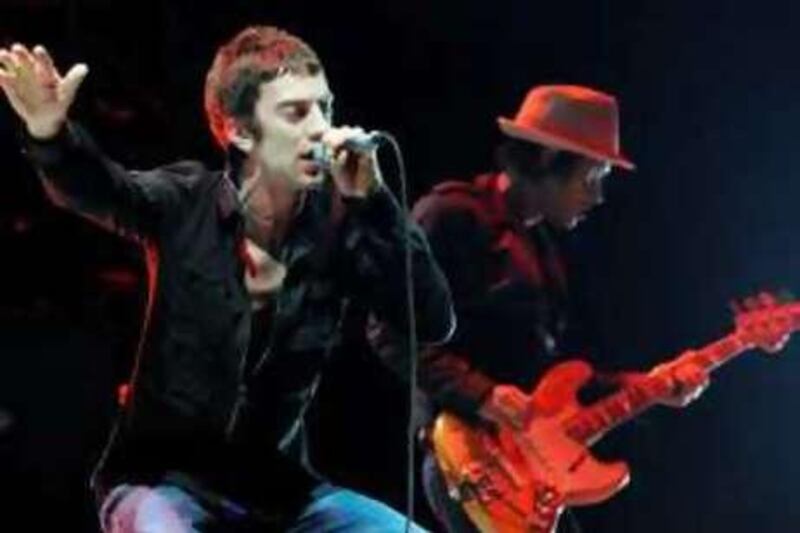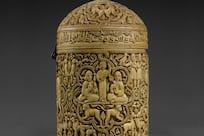The Verve have been apart almost as much as they have been together. In nearly 20 years since they first formed, the group have split up twice: once in 1996 and again in 1999. When their singer Richard Ashcroft went solo in 2000, the rupture seemed terminal. "You're more likely to get all four Beatles on stage," he said when asked about the likelihood of another reunion.
Yet after an eight-year hiatus, The Verve are back together. For many, it is a welcome return. Tickets for their tour in 2007 sold out in less than 20 minutes. Performances at festivals such as Glastonbury this summer were dubbed "epic" and "awesome", building momentum in the run up to the release of Forth. Urban Hymns, the group's previous album released back in 1997, thrust The Verve from the shadow of fellow-Mancunians Oasis into the world's stadium spotlight glare. Bitter Sweet Symphony, a soaring, string-led anthem tinged with melancholy, was a massive hit in the UK and the US. How apt - bittersweet in fact - that the group's greatest success should become a monster of sorts, pried from their control after legal wrangling over the string sample, from a Rolling Stones song, at its heart.
The group are making no such mistakes this time. Although most songs on Forth clock in at over six or seven minutes, extended jams and sonic meanderings, rather than samples, form their core. In its psychedelic grain and moody tone, this album is a return to the group's earlier work, A Storm in Heaven and A Northern Soul. For some reason, this style of music conjures up a temptation to talk of vast aural vistas, awesome landscapes of sound and guitars rumbling like electrical storms in the distance. Of course, such descriptions invite mockery and so, to some extent, do the songs they describe.
Numbness is a wheezy sigh, which lurches and lumbers along for six and half minutes until it keels over and dies. Rather Be is a muddy plod, an anthem glimpsed briefly before you drown in a thick puddle of guitars, strings and, ultimately, tedium. Yet more often than not, Forth is full of subtle but important surprises. The opening songs, Sit and Wonder and Love is Noise, have been proven live. Their energy and vibrancy fizz from the speakers. The former is brooding and dramatic, while the latter, with its driving beat and synth breakdown, is the closest The Verve have, and probably will ever, come to a dance floor anthem. Elsewhere, there are snarling psychedelic workouts like Noise Epic and mellow meditations like Appalachian Springs. But it is Valium Skies, with its vaguely anachronistic title and slightly feeble opening, which suddenly pounces, as if its shortcomings were intentional camouflage.
Its call and return build up release a superb, transcendental chorus, which you don't want to end. It's a fine reminder that, for all the imitators, no one has managed to do in their absence what The Verve do so well - Richard Ashcroft included.
Just as some may question the difference between a Jackson Pollock painting and an accidental spillage, so some may dismiss Forth as self-indulgent noise, criminally drawn out.
Others, including me, humbly disagree.
rcarroll@thenational.ae





